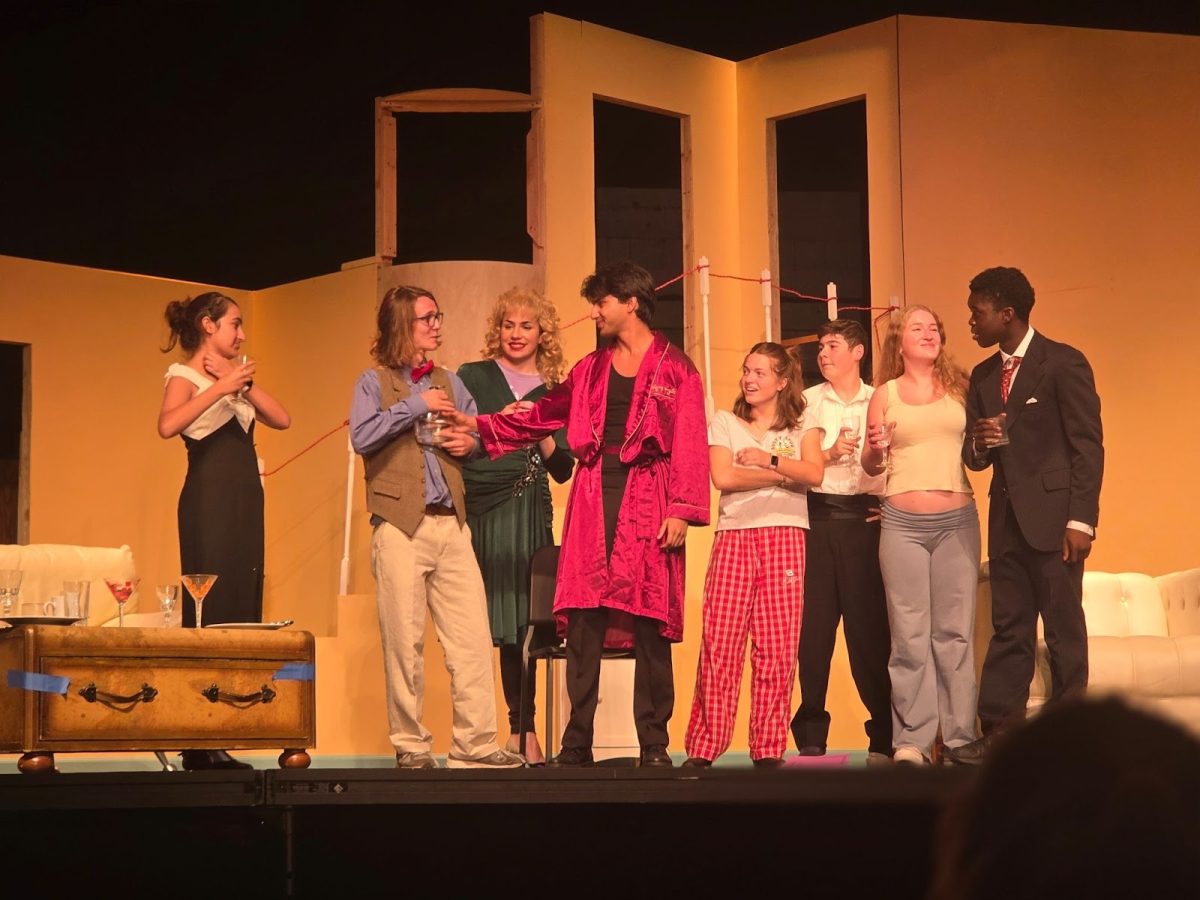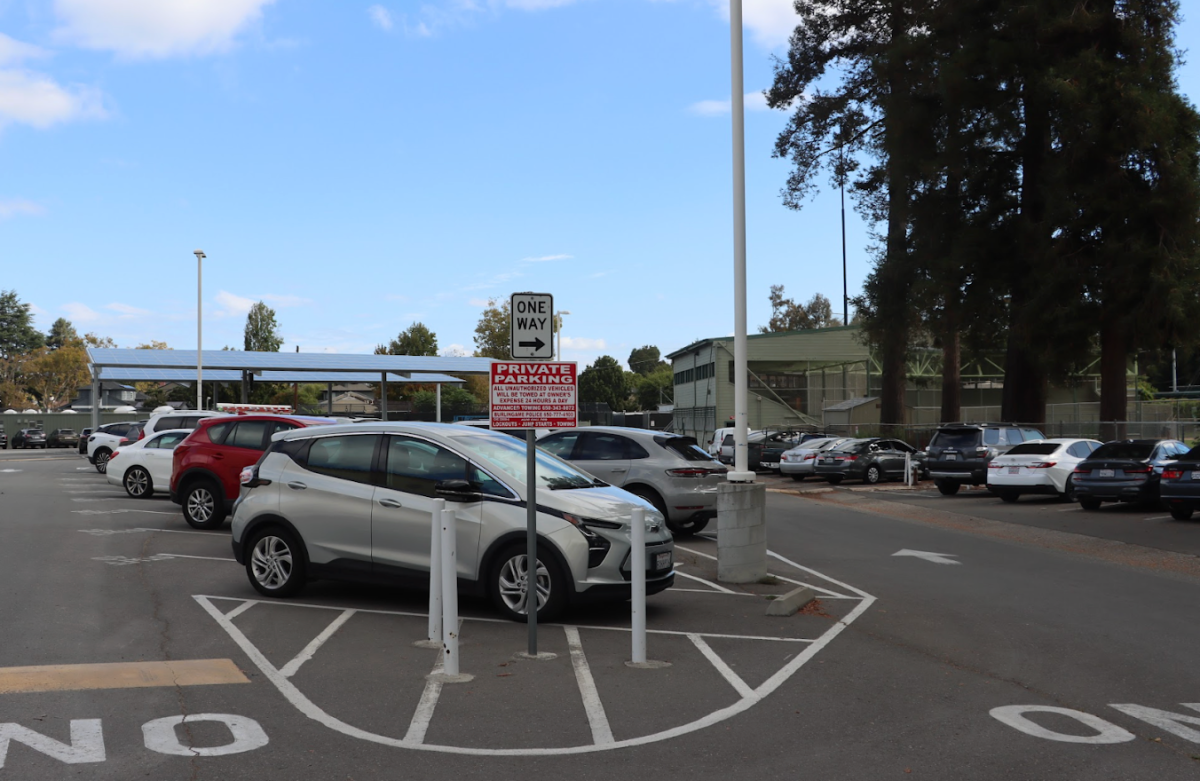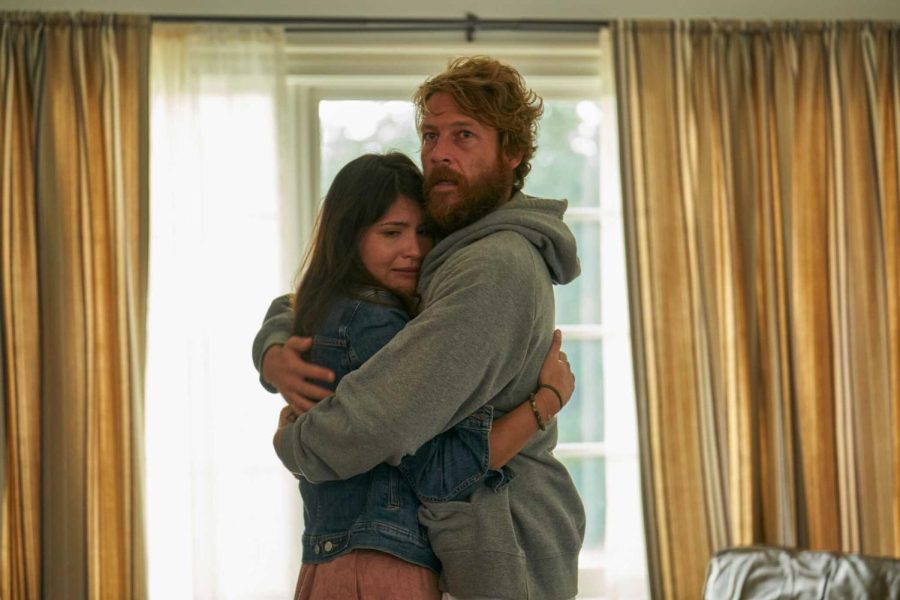Sadly, “One True Loves” is a true let down
Emma (Phillipa Soo) reunites with Jesse (Luke Bracey) for the first time in four years.
May 7, 2023
“One True Loves” is not Reid’s only screen adaptation this year. Recently, her novel “Daisy Jones and The Six” was released on Amazon Prime Video as a miniseries adaptation starring Elvis Presley’s granddaughter, Riley Keough, and was an immediate fan favorite. Her legion of followers are also looking forward to the scheduled adaptations of “The Seven Husbands of Evelyn Hugo”, “Malibu Rising” and “Carrie Soto is Back.”
As an avid fan of Reid’s novels, I was originally excited for “One True Loves” release as well as Reid’s other upcoming films. However, after watching it, I was extremely disappointed with its rushed plotline, the transformation of adored characters into one dimensional people and the lack of the classic rom-com feeling.
The film follows Emma (Philipa Soo), a girl who always longed to travel outside the boundaries of her small hometown. From adolescence to adulthood, Emma’s love life revolved around Sam (Simu Liu) and Jesse (Luke Bracey). Jesse and Emma fell in love and got married while traveling the world, but their love story ended abruptly when Jesse died in a helicopter accident. After grieving, Emma reunited with her childhood best friend, Sam, who was always infatuated with Emma. Sam and Emma reconnected and got engaged after years of going back and forth. Suddenly, Jesse returns after being presumed dead for four years, and Emma’s life completely unravels.
The book, like many of Reid’s novels, moves back and forth through time, giving the reader glimpses of Emma as a teenager, young adult and in the present. In theory, the plot was separated into chapters dedicated to one period of Emma’s life, but in practice, the film changed from past to present too frequently and did not flow well. This caused Jesse, one of the two love interests, and his death, to mean nothing to the viewer. In addition to Jesse’s unfortunate situation, the film did not properly illustrate Emma’s grieving and Jesse’s post-traumatic stress disorder when he returns, producing an unserious and unbelievable plot. The poorly-sequenced storyline made for a shallow romance, keeping the audience from being invested in the ending.
The lack of context for each character made them feel superficial in the film. I didn’t feel like I could root for Emma and Jesse because I didn’t fully understand their complicated history because there was not enough time spent on their initial relationship. If anything, the lack of context made me dislike most characters – it made finishing the movie feel like a chore. There was also a vast discrepancy between the novel’s ending and the film’s ending. In the novel, both love interests were depicted as compassionate men and Emma had a loving relationship with both men, which made it hard to decide which one seemed like a better fit. Because of this, the book’s ending was more of a shock. On the other hand, the film’s representation of both characters, and Emma’s relationship with both men, was more distinct. The film portrayed her relationship with Jesse as loveless while depicting her relationship with Sam as loving. Ultimately, the film’s interpretation of the plot made Emma’s final decision obvious and expected, while the book kept the reader guessing until the very end.
In addition to underdeveloped main characters, the secondary characters were too involved in major decision-making. Specifically, Emma’s sister, Marie, tended to answer life-changing questions for Emma instead of simply providing advice, preventing Emma from expressing herself as a protagonist should. Marie and other side characters, such as Sam’s students, analyzed the plot for the viewer and made it even harder to connect and empathize with Emma.
In addition to its inadequate reworking of the novel, the film added unnecessary scenes that were not initially part of the novel. For example, the film added multiple conversations between Sam and his students in a failed attempt at the cringey yet lovable jokes and humor that characterize rom-coms. Instead, Sam’s unusual consultations with his students regarding his love-life were just uncomfortable to watch.
If you’re interested in Emma’s storyline, don’t watch “One True Loves”– read the book. Although this film did not sit well with me personally, I believe that the storyline was meant to be illustrated in a different art form: literature. The novel included key aspects missing from the film, and this unique fiction can and should be enjoyed through Reid’s original words.






































